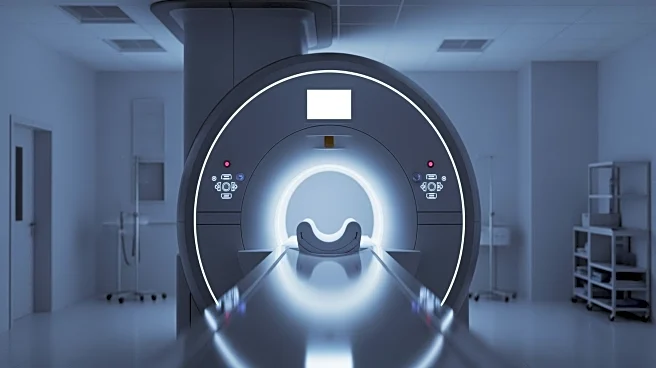What's Happening?
President Donald Trump recently disclosed that he underwent a magnetic resonance imaging (MRI) scan during a visit to Walter Reed National Military Medical Center. The visit, which followed his annual physical exam in April, was described by the White
House as a 'follow-up evaluation' and part of his ongoing health maintenance plan. The MRI was part of a series of advanced imaging and preventive health assessments conducted by a multidisciplinary team of specialists. Despite not specifying the purpose of the MRI, Trump assured that the results were 'perfect.' His physician, Navy Capt. Sean P. Barbabella, confirmed that Trump is in 'exceptional health,' with strong cardiovascular, pulmonary, neurological, and physical performance. This comes amid scrutiny over Trump's health, particularly after he was seen with a bruise on his hand and swelling in his lower legs, which officials attributed to his active schedule and a benign condition common in older men.
Why It's Important?
The health of President Trump is a matter of public interest, given his role as a key political figure. The recent MRI and subsequent health evaluations are significant as they provide insights into his ability to fulfill the demanding responsibilities of his position. The scrutiny over his health, especially with visible signs like bruising and swelling, raises questions about his physical condition and the potential impact on his leadership. The confirmation of his 'exceptional health' by his physician may reassure supporters and stakeholders about his capability to continue his duties. However, the lack of detailed information about the MRI's purpose might leave some questions unanswered, potentially fueling further speculation.
What's Next?
As President Trump continues his duties, his health will likely remain under observation, especially given the public interest and scrutiny. The White House may face pressure to provide more transparency regarding his health assessments to address any lingering concerns. Political opponents and analysts might use any perceived health issues as a point of critique, while supporters may emphasize the positive health reports to bolster confidence in his leadership. Future health evaluations and any new developments will be closely monitored by both the media and the public.
Beyond the Headlines
The focus on President Trump's health highlights broader issues of transparency and public trust in political figures. The way health information is communicated can influence public perception and confidence in leadership. This situation underscores the importance of clear and comprehensive communication from the White House regarding the health of the President, which can impact political dynamics and public sentiment.















